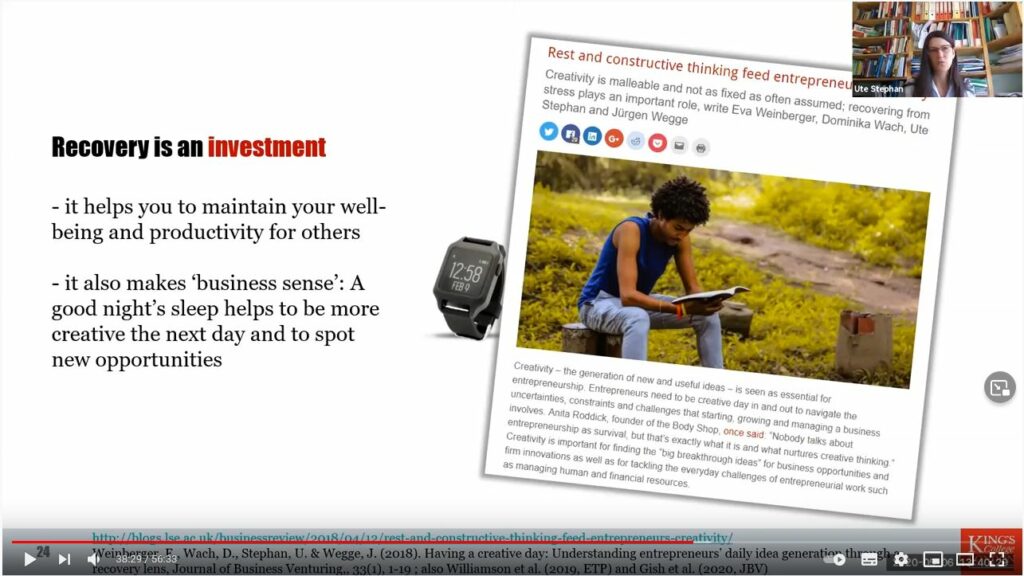Prof. Ute Stephan, King’s, Professor of Entrepreneurship; Dr. Dominika Wach, TUD, Prof. Dr. Jürgen Wegge, TUD, Chair of Work and Organisational Psychology
Entrepreneurs are the backbone of the global economy: Small and medium-sized enterprises (SMEs including the self-employed) account for 90% of businesses globally and provide 70% of employment worldwide. They are particularly threatened by the Covid-19 pandemic as they typically have fewer resources than larger firms. This means that millions of jobs are at risk.
A global research network led by transCampus professor Ute Stephan (King’s College London, King’s Business School) surveyed 5,206 entrepreneurs (3,796 SME owner-managers and 1,410 self-employed) in 23 countries between April and August 2020 to map the impact of the pandemic on their businesses and the entrepreneurs personally. The results of this study are published in one global report and five country reports, including the German report generated by the TU Dresden research group of Dr. Dominika Wach and supported by the transCampus funding programme.
Highlights of the study are that 61 % of entrepreneurs saw the very existence of their business threatened by the pandemic. Main problems included delayed payments from suppliers, difficulties paying employees and business costs in general. 68% adapted to the new situation by changing the plans for their business and 62 % applied for government support. However, roughly a quarter of entrepreneurs indicated that nothing had changed during the first phase of the pandemic, 39% recognized new business opportunities, and nearly half are optimistic looking at a post-pandemic future.
Entrepreneurs in our study showed significant societal engagement during the pandemic despite the threat to their businesses and belying the stereotype of “entrepreneurs as lone heroes”. Half of the entrepreneurs volunteered their businesses’ services and products for good causes, 43% volunteered their personal time for societal benefit and 62% gave money to charity or good causes.
The study also revealed the negative impact of the Covid-19 pandemic on the well-being and mental health of the entrepreneurs. Their mental well-being diminished by 12%. Some entrepreneurs viewed the pandemic as an opportunity to ‘not go back to pre-Covid levels of crazy busy’. To safeguard their productivity and well-being, about half of entrepreneurs engaged in important self-care behaviors (e.g., getting sufficient sleep and exercise, making time to unwind from work) and mobilized social support from family, friends and fellow entrepreneurs. To support them, the scientists published suggestions how to deal with stress and stay resilient in a blog and video (available here on the blog ). A problem, however, that cannot be resolved on an individual level, is that in many countries, entrepreneurs are worried about insufficient medical care for themselves and their loved ones.
The results were widely reported in the UK media, for example, by the BBC, the Guardian and the Financial Times, and worldwide (Al Jazeera, New Zealand Herald). The expertise of the scientists conducting the study was also in demand at the Expert Round-table held at the EU SME Assembly in November 2020, and national policy events, for instance, in Germany, Poland, the UK and the US. More information about the study is available on the Website of the study.



